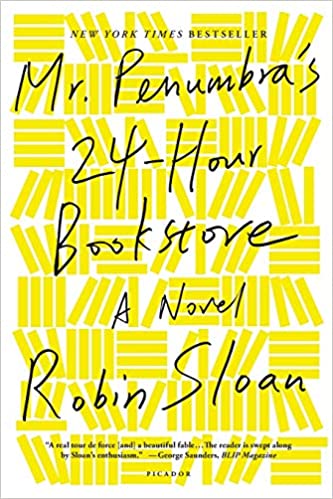General Nature of the Course
This course functions very much like a correspondence course; the chief difference is the electronic environment and your relatively immediate access to your instructor (me). Also instead of students submitting work on paper, assignments are submitted, commented upon and returned via e-mail; lecture material, course deadlines, assignment information are available via the internet.
Lectures: There are a series of online Lectures on topics related to your reading and writing. Be sure to read the lecture material for each week listed because this should help you to understand what some of my expectations and special concerns are about your reading and writing.
Class Schedule: You will need to regularly keep track of assignment (reading and writing) due dates by referring to the Class Schedule. It is up to you to keep up with assignment deadlines. I highly recommend that you bookmark the Schedule page.
Essays: Much of your grade is based on your written assignments. There are detailed instructions on how to produce and submit essays on the class Writing Assignments page. Read over this material very carefully; there are requirements on length, file format, MLA format, etc. that you need to know. Specific paper topic instructions can be reached through the links on the Class Schedule page or the Writing Assignments page.
Class Discussions: The rest of your grade will be based on class discussions of certain questions relating to the readings. Discussions will be conducted with the entire class on an Canvas message board (more information is available on the Discussions page). Be sure that you read this page thoroughly so that you can earn maximum discussion points.
Student Learning Objectives
Student who complete this course successfully should, minimally, be able to- Apply critical reading and thinking skills to various freshman composition level readings including essays and the novel.
- Write freshman-level essays that follow the various stages of essay writing, including prewriting, thesis development, illustration and support of the thesis using concrete, specific evidence/examples, editing, proofreading and which are free of most errors in syntax, grammar, punctuation, diction, and spelling, and which demonstrate understanding of effective college-level argumentation by producing logicallysupported arguments and by recognizing and avoiding common logical fallacies.
- Produce a research paper which utilizes the various elements of research production, such as designing a research plan, compiling research notes, developing a draft, producing a finished paper that utilizes at least five sources and has a complete MLA-format Works Cited page.
Student Responsibilities
Your responsibilities for this course are really the same as those of any student taking any course with the following addition: you have to keep reminding yourself what is required (assignment dates, rules, etc.) because you don't have an instructor in the front of a room reminding you every class.
You will do all of the assignments. This means you need to look at the Course Schedule often to make sure when work (reading, writing, lectures, discussions) are due. Keep up with all lectures, readings, discussions, writing assignments.
You will have all of the textbooks for this course. You need not buy them, but all assigned readings are required.
You will seek all legitimate help with your course work. That means that when you have questions you will e-mail me immediately or come see me during my office hours on campus. You should also consider taking English 67 (the Writing Lab) if you need additional tutoring.
You will not cheat. It's fine to get legitimate help; it's not all right to plagiarize. I am well aware that papers can be bought. I am also very savvy about finding those papers (both in print sources and on the internet). The English Department at LAHC has several resources (one is Plagiserve; there are several others) which allow us to track stolen or bought papers. Likewise, using AI (such as ChatGPT) to write your papers for you is cheating; it is not YOU demonstrating that YOU can articulate YOUR OWN IDEAS.
You will not threaten or belittle (or flame) other students in class discussions. DO feel free to present opposing arguments on ANY subject, but do not personally attack others in the class.
You will be bound by all other codes of student conduct listed in the college catalogue.
Title IX (of the 1972 Education Amendments) protects students and staff alike from discrimination based on sex, including Sexual Harassment and Sexual Assault, which are forms of Sexual Misconduct. Under Title IX, all people in the educational environment must be treated equitably, regardless of sex, sexual orientation or expression, and/or transgender identity. For more information: http://www.laccd.edu/Departments/DistrictResources/OfficeOfDiversity/TitleIX/Pages/default.aspx
If you have experienced or learned of a possible violation of Title IX and/or would like to know about options, resources (including confidential services), the law, or District policy, please do not hesitate to contact a Title IX Coordinator.
LAHC Campus Title IX Coordinators : Peggy Loewy Wellisch (310) 233-4321 loewywp@lahc.edu & Dawn Reid (310)233-4237 reidd@lahc.edu District Title IX Office: Office for Diversity, Equity, and Inclusion (213) 891-2315 TitleIX@email.laccd.edu
If you do not agree to all of the above requirements, do not take this course.
LAHC Student Resources
For a list of resources available to students at Los Angeles Harbor College, please click this link: LAHC Resources Information.
Textbooks, Hardware and Software
Required Texts
I will have several readings available to you on Canvas in the Files section. These are not optional readings, and, in fact, many of the assignments you do absolutely require you to quote and cite directly from these readings. In addition to those readings, there are also two books you must have:
There are two novels for the course, but you only need to choose/read one (see the sidebar - the pinkish box on the right). Here are the two books:
Although it's not exactly a textbook, the Purdue OWL website is something you may want to refer to often for information on research and MLA format; if you have an up-to-date (with MLA 2016 changes) writing handbook, that will work fine instead of Purdue OWL, and much of the format information is also avaialble in the Files section on Canvas.


Important Note About Hardware
Please do not try to take this class completely on your phone. Smart phones are fantastic and useful and flexible, but they are not the right tool for typing essays in a specific format.
I also strongly recommend against a tablet, but if you have a full-featured one with necessary software loaded and a keyboard connected, that will probably work.
You don't need anything fancy. A Chromebook (or similar flash drive computer) will work perfectoly well. Since storage is minimal on a Chromebook, I do recommend you save things to a thumb drive, though.
Required Software
You do need some sort of browser (such as FireFox or Chrome or Safari), an e-mail program and word processing software.
You will need to be able to open/read .docx (Word) and .pdf files; most readings on Canvas are stored in one of these standard formats. If you do not have a .pdf reader on your computer, you can download Adobe READER (not the expensive Acrobat) for free.
DO NOT send me files via Google DOCS or on OneDrive for Business. Yes, Google is convenient, but the required MLA format is often lost in Google DOCS, and papers not in the corrrect format will not be accepted. Files must be sent as Word (.docx) or .pdf files, so please download Word to your computer OR make sure you can Save As one of those two formats. Again, both are standard.
There is no reason for you not to use Word. Every student in the LACCD has access to Word 365 for FREE. Click here for information on accessing the free Student Version of Word 365. You can also set up (and forward) your student e-mail here; Announcements to the Class go to your school e-mail account, so you must either look at that regularly or have the mail forwarded to your private e-mail account.
More on how to submit your essays, how to set up your papers in MLA format, etc. can be found here on our Writing Assignments page.
Grading
Each assignment will receive a point score; letter grades are based on percentages (90-100% = A; 80-89% = B; etc.); for example, if a discussion is worth 20 points possible, and if you score a 16, then you have scored 80% which equals a B for that assignment.
At the end of the semester, your overall score will be converted into a percentage of the points possible for the entire course to determine your letter grade for the course.
Grades will be available for view on Canvas.
For more information about what constitutes an "A" paper (or not), click here. Note: if you would like to see what an "A" paper for this class looks like, there are links to sample papers from both the grades page and the writing assignments page.
And for specific information on extra credit, revisions, essay requirements, visit the class Writing Assignments page; for more details on how to score high on class discussions, visit the class Discussion page.

![[course schedule]](btnhour.jpg)
![[discussion questions]](btndisc.jpg)
![[writing assignments]](btnhwrk.jpg)